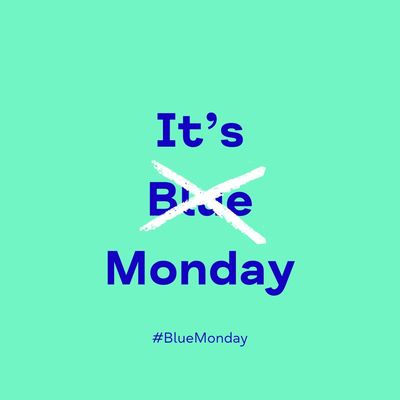Last year the UK government announced significant increases to the National Minimum Wage (NMW) and National Living Wage (NLW), set to take effect from 1 April 2024. While these changes are intended to support low-paid workers, they also bring about several hidden challenges for businesses that employers must be aware of.
Overview of NMW and NLW Changes
From 1 April 2024, the NLW, which applies to workers aged 21 and over, will rise to £11.44 per hour, marking a substantial increase of 9.8% from the current rate of £10.42. The NMW rates will also increase, with the 18-20 age bracket rising to £8.60, and the 16-17 age bracket and apprentice rate both increasing to £6.40. These changes will bring a significant number of employees into the minimum wage bracket, as the age threshold for the NLW has been lowered from 23 to 21, and the rates have increased considerably. This will have far-reaching consequences for businesses across various sectors.
Pressure to Maintain Wage Differentials
One of the most significant hidden costs of the NMW and NLW increase is the pressure it places on businesses to maintain wage differentials throughout their organisation. As the minimum wage rises, employees in higher-paid positions will expect their pay to increase proportionately to preserve the hierarchy and reward their additional skills, experience, and responsibilities. For example, if a team leader previously earned £3 per hour more than their team members, they would expect this differential to be maintained after the minimum wage increase. Failure to do so could lead to dissatisfaction, reduced morale, and potential retention issues among higher-paid staff. This can result in a cascading effect, with wage increases needed across all levels of the business, even for those not directly affected by the NMW or NLW changes. Businesses will need to carefully review their pay structures and budget for these additional costs to maintain a fair and competitive wage hierarchy.
Psychological Impact
The NMW and NLW increase can have significant psychological impacts on two groups of employees: those who are promoted and those who were not previously at the minimum wage but now find themselves in this bracket.
For employees who are promoted from a lower-tier position to a higher one, the expectation of a meaningful pay rise to reflect their new responsibilities and status within the organisation may not be met due to the minimum wage increase. If the pay differential between the two tiers is smaller than before, newly promoted staff may feel that their promotion is less significant, leading to reduced motivation and job satisfaction.
Similarly, employees who were previously earning above the minimum wage but now find themselves at the NMW or NLW rate may feel undervalued and demotivated. These employees may have previously taken pride in earning above the minimum wage, and the change in their status could lead to a decrease in productivity and engagement. They may feel that their skills, experience, and loyalty to the company are not being adequately recognised or rewarded.
To mitigate these psychological impacts, businesses will need to focus on communication and employee engagement. Managers should have open discussions with affected employees, acknowledging their concerns and emphasising their value to the organisation. Businesses may also need to consider additional non-financial rewards and recognition programmes to maintain morale and motivation among these groups of employees.
Increased Risk of Employee Turnover
As more people are brought into the NMW and NLW bracket, businesses may face a higher risk of employee turnover. With a larger pool of jobs offering the same minimum wage, employees may feel less loyal to their current employer and more inclined to seek opportunities elsewhere. This is particularly true if they feel that their increased pay is not commensurate with their skills, experience, or length of service. Additionally, the rise of flexible working arrangements and remote work opportunities has made it easier for employees to switch jobs without the need to relocate. This can lead to increased recruitment and training costs for businesses, as well as potential disruptions to operations due to staff shortages. To counter this, businesses will need to focus on creating a positive work culture, offering competitive benefits, and providing opportunities for growth and development to retain their skilled workforce.
Impact on Employees Receiving Benefits
The NMW and NLW increase can also have implications for employees who receive benefits as part of their compensation package. Some common examples of these benefits include pension contributions, health insurance, company cars, and childcare vouchers. In some cases, the value of these benefits may cause an employee's overall remuneration to fall below the new minimum wage thresholds, even if their base salary is above the minimum wage. Employers will need to review their compensation structures and potentially increase salaries to ensure compliance with NMW and NLW regulations for all employees, regardless of their benefit packages. This can be particularly challenging for businesses that have previously relied on benefits to attract and retain staff, as they may need to shift more of the compensation to direct salary payments to meet the new minimum wage requirements.
Potential Impact on Inflation
Although inflation has been relatively high in recent months, it is currently showing signs of falling. While the NMW and NLW increase could potentially contribute to inflationary pressures as businesses grapple with higher labour costs and may need to raise prices for their goods and services, the impact may be less severe than if the increases had occurred during a period of rapidly rising inflation. Nevertheless, businesses will still need to monitor the economic landscape closely and adapt their strategies accordingly to remain competitive.
Conclusion
The increase in the National Minimum Wage and National Living Wage brings both benefits for low-paid workers and hidden challenges for businesses. Employers must be proactive in addressing these potential issues, such as maintaining wage differentials, managing the psychological impact on promoted employees and those brought into the minimum wage bracket, mitigating the risk of increased turnover, and ensuring compliance for staff receiving benefits. By understanding and preparing for these hidden costs, businesses can better adapt to the changing wage landscape and support their employees while remaining competitive in their respective markets.













.png)